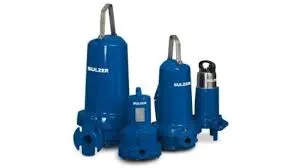Khmer
- Afrikaans
- Albanian
- Amharic
- Arabic
- Armenian
- Azerbaijani
- Basque
- Belarusian
- Bengali
- Bosnian
- Bulgarian
- Catalan
- Cebuano
- Corsican
- Croatian
- Czech
- Danish
- Dutch
- English
- Esperanto
- Estonian
- Finnish
- French
- Frisian
- Galician
- Georgian
- German
- Greek
- Gujarati
- Haitian Creole
- hausa
- hawaiian
- Hebrew
- Hindi
- Miao
- Hungarian
- Icelandic
- igbo
- Indonesian
- irish
- Italian
- Japanese
- Javanese
- Kannada
- kazakh
- Khmer
- Rwandese
- Korean
- Kurdish
- Kyrgyz
- Lao
- Latin
- Latvian
- Lithuanian
- Luxembourgish
- Macedonian
- Malgashi
- Malay
- Malayalam
- Maltese
- Maori
- Marathi
- Mongolian
- Myanmar
- Nepali
- Norwegian
- Norwegian
- Occitan
- Pashto
- Persian
- Polish
- Portuguese
- Punjabi
- Romanian
- Russian
- Samoan
- Scottish Gaelic
- Serbian
- Sesotho
- Shona
- Sindhi
- Sinhala
- Slovak
- Slovenian
- Somali
- Spanish
- Sundanese
- Swahili
- Swedish
- Tagalog
- Tajik
- Tamil
- Tatar
- Telugu
- Thai
- Turkish
- Turkmen
- Ukrainian
- Urdu
- Uighur
- Uzbek
- Vietnamese
- Welsh
- Bantu
- Yiddish
- Yoruba
- Zulu
Telephone: +86 13120555503
Email: frank@cypump.com
ធ្នូ . 21, 2024 11:45 Back to list
slurry tanker hydraulic pump
The Importance of Slurry Tanker Hydraulic Pumps in Modern Agriculture
In the realm of modern agriculture, efficient management of waste products and fertilizers is crucial for sustainable farming practices. One of the essential components in this sector is the slurry tanker hydraulic pump. These pumps play a vital role in transporting and distributing slurry— a mixture of water and organic waste, commonly produced by livestock. The functionality, design, and importance of slurry tanker hydraulic pumps are pivotal for maintaining productivity and environmental responsibility on farms.
Understanding Slurry Tankers
Slurry tankers are specialized vehicles designed to carry liquid manure or slurry from farms to fields. They facilitate the recycling of nutrients present in organic waste, which can be beneficial for crop growth. However, to effectively transport this heavy mixture, slurry tanker hydraulic pumps are employed. These pumps are engineered to handle thick, viscous materials, ensuring that the slurry is moved efficiently and without compromising its nutrient content.
How Hydraulic Pumps Work
Hydraulic pumps utilize fluid power to perform work in various applications. In the case of slurry tankers, the hydraulic system harnesses oil under pressure to drive the pump. This mechanism allows for the generation of high forces that can overcome the resistance of the slurry. Both vane and gear pumps are commonly used in slurry applications, depending on the specific needs of the operation.
When activated, the hydraulic pump creates suction, drawing the slurry from a storage pit or lagoon into the tanker. Once filled, the pump can also facilitate the distribution of the slurry onto fields via a spreading system. The ability to control the flow rate and pressure is critical, as it helps farmers apply the right amount of nutrients at the right time, optimizing crop yield while minimizing waste.
Key Benefits of Slurry Tanker Hydraulic Pumps
slurry tanker hydraulic pump

1. Efficiency One of the primary advantages of hydraulic pumps is their efficiency in moving large volumes of slurry quickly. This capability is particularly beneficial during peak application periods when time is of the essence for farmers.
2. Versatility Hydraulic pumps can be adapted to various slurry types and consistencies. They can handle everything from liquid manure to semi-solid waste, making them suitable for a diverse range of agricultural settings.
3. Reduction of Environmental Impact By allowing farmers to reclaim and utilize nutrients from waste products, slurry tanker hydraulic pumps contribute to more sustainable farming practices. This reduces the need for chemical fertilizers, lessening the environmental footprint of farming operations.
4. Improved Soil Health When organic waste is correctly applied to fields, it enhances soil structure and fertility, promoting a healthier ecosystem. The precise application enabled by hydraulic pumps ensures that crops receive the necessary nutrients without over-fertilization, which can lead to runoff and water contamination.
5. Labor Savings The automation and efficiency of hydraulic pumps reduce the manpower needed for slurry management. This saves time and labor costs, allowing farmers to focus on other critical tasks and enhance overall farm productivity.
Conclusion
As the agricultural industry continues to evolve, the role of slurry tanker hydraulic pumps becomes increasingly significant. They not only enhance operational efficiency but also promote sustainable agricultural practices that safeguard our environment. With a growing global population and the increasing demand for food production, the need for effective waste management solutions like slurry tanker hydraulic pumps will only intensify. Investing in quality hydraulic pumping systems is an essential step towards a more productive and eco-friendly agricultural future.
-
Reliable Non-Clog Sewage Pumps with GPT-4-Turbo Tech
NewsAug.04,2025
-
High-Performance Air Pumps for Sand & Gravel | Efficient Transport
NewsAug.03,2025
-
ISG Series Vertical Pipeline Pump - Chi Yuan Pumps Co., LTD.|Energy Efficiency, Corrosion Resistance
NewsAug.03,2025
-
ISG Series Pipeline Pump - Chi Yuan Pumps | Energy Efficiency&Compact Design
NewsAug.03,2025
-
ISG Series Vertical Pipeline Pump - Chi Yuan Pumps Co., LTD.|High Efficiency, Low Noise, Durable
NewsAug.02,2025
-
ISG Series Vertical Pipeline Pump - Chi Yuan Pumps | High Efficiency, Low Noise
NewsAug.02,2025










